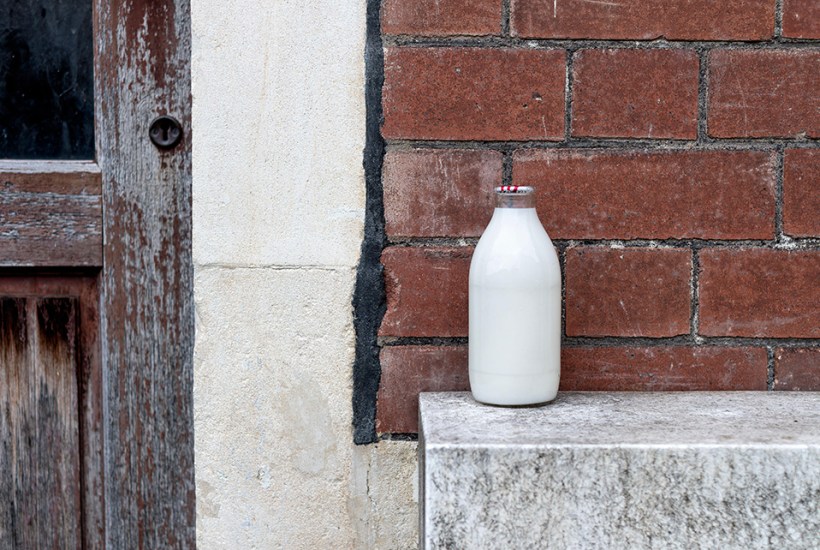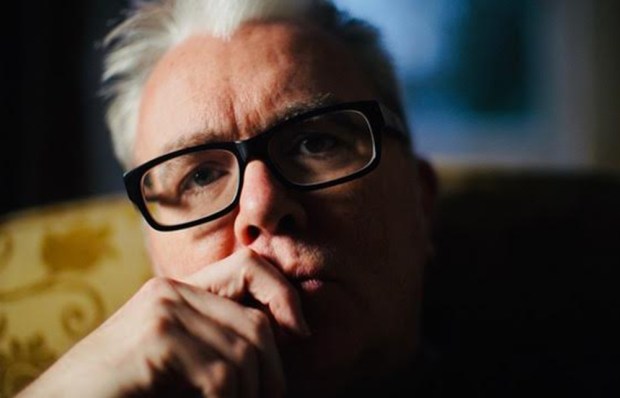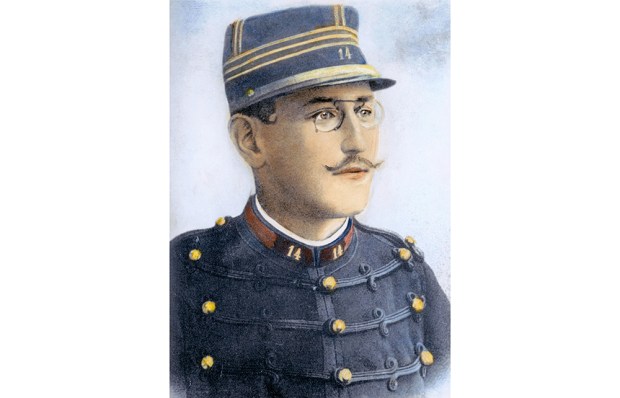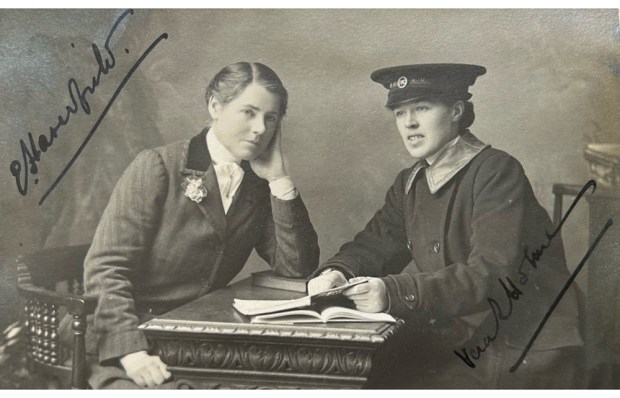It’s been a while since I read a good cento, from the Latin and derived from the Greek, I need not remind Spectator readers, meaning ‘patchwork’, and thus a literary work composed of quotations from other writers, the earliest known example being Hosidius Geta’s Medea, consisting entirely of lines from Virgil and which is almost as good as it sounds. Contemporary literary centos, or cento-like creations, include a lot of very bad found poems but also Graham Rawle’s simply incredible Woman’s World (2005), a novel collaged from cut-up lines from women’s magazines, and David Shields’s profoundly plagiaristic work of literary criticism, Reality Hunger: A Manifesto (2010).
Peter Blegvad’s Milk: Through a Glass Darkly, as one might perhaps expect, is something different. Blegvad is truly unclassifiable: a writer, artist and musician perhaps best known for his work with the 1970s avant-garde bands Slapp Happy and Henry Cow. Or perhaps he’s best known for his long-running cartoon strip in the Independent, Leviathan, which was the thinking man’s Calvin and Hobbes? Or for the indescribable ‘eartoons’ that he used to produce for BBC Radio 3’s The Verb? Maybe ‘best known’ is overstating it: Blegvad is truly one of those writer’s writers, an artist’s artist and a musician’s musician. He’s also a long-standing member, apparently, of the London Institute of ’Pataphysics, inspired by the work of Alfred Jarry, with whom Blegvad might justifiably be compared. He’s one of those people who just makes and does very strange and beautiful and interesting things.
Milk is very interesting: for Blegvad, it’s been an obsession. As he explains in his Q-and-A-style introduction, this is a work that’s been 50 years in the making. He started collecting material when he was 20: ‘I’d just read about Alfred Hitchcock putting a light in a glass of milk and the image seemed portentous, freighted with meaning. I began collecting quotes that confirmed my hunch that milk, even without a light in it, and despite the normalising efforts of dairies and marketing boards, is numinous, psychically active.’ What this lifetime’s hoard now amounts to is about 350 numbered, lightly edited and loosely connected remarks about milk, its colour, its smell, and much else.
Sources range from the obvious (Roland Barthes’s essay ‘Wine and Milk’, Claude Lévi-Strauss’s The Raw and the Cooked) to the rather more recherché (Lewis Carroll’s ‘Musings on Milk’, from the Rectory Magazine) and the distinctly occasional (a quotation from a review by Fiona MacCarthy of two books about cosmetic surgery, excised from the New York Review of Books).
It’s not exactly an easy read. Much of the material is odd, and not just because it’s out of context: it would be distinctly disturbing in any context. ‘Toads thrive on burning cigarette ends and human milk. Some 40 years ago I had to read The Letters of Junius. All I remember is that one of the royal family was “subject to the hideous suction of toads”’ (Evelyn Waugh, letter to Ann Fleming, 3/3/1964). ‘Haven’t I always been a cannibal? As a child I sucked my mother’s breasts, draining her flesh. I longed to taste the salt of her blood through the salt of milk, trying to replace the blood that used to come to me through the umbilical cord, to flow through me like alcohol through an alcohol addict’ (Josip Novakovich, ‘In the Same Boat’).
Make of it what you will, on one level the book is merely a compendium but on another it amounts to a kind of autobiography, a portrait of the self, mediated through milk. Glowing, elemental, otherworldly and full of natural goodness, Milk has gotta lotta bottle.
Got something to add? Join the discussion and comment below.
Get 10 issues for just $10
Subscribe to The Spectator Australia today for the next 10 magazine issues, plus full online access, for just $10.
You might disagree with half of it, but you’ll enjoy reading all of it. Try your first month for free, then just $2 a week for the remainder of your first year.














Comments
Don't miss out
Join the conversation with other Spectator Australia readers. Subscribe to leave a comment.
SUBSCRIBEAlready a subscriber? Log in